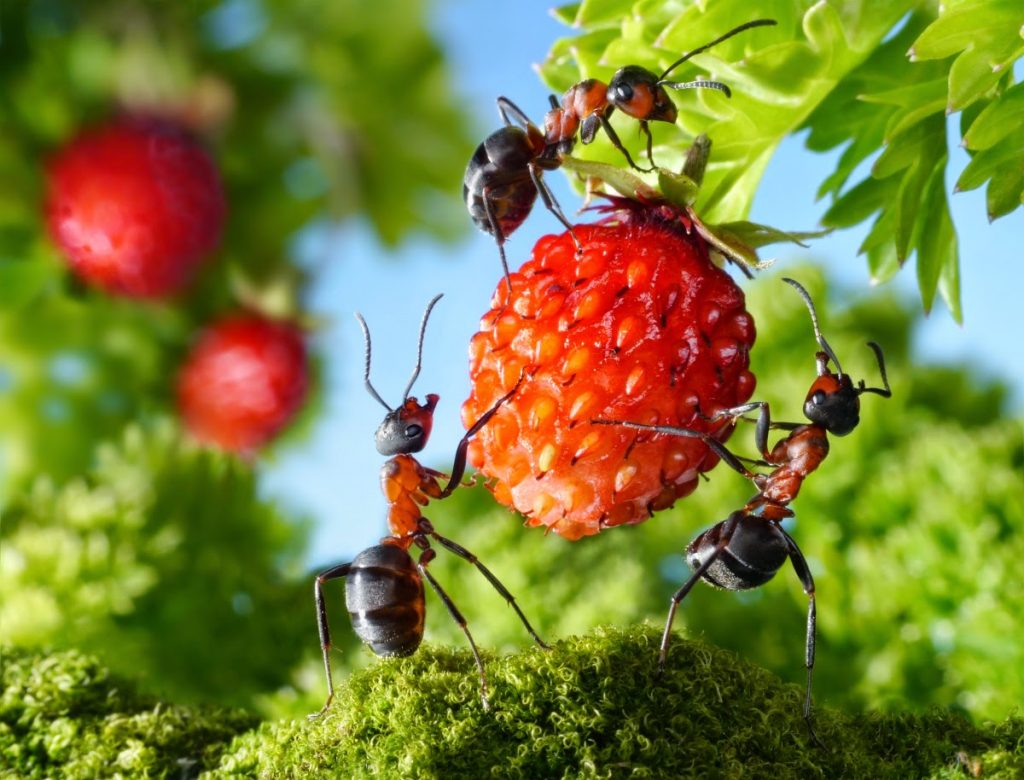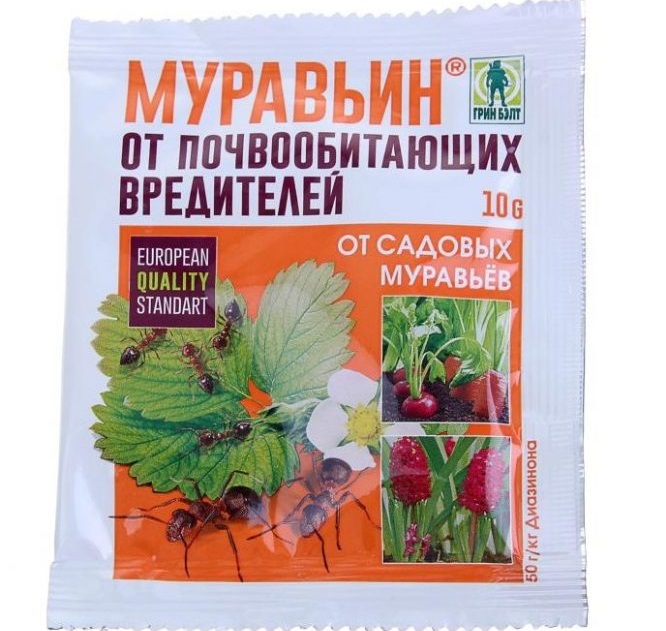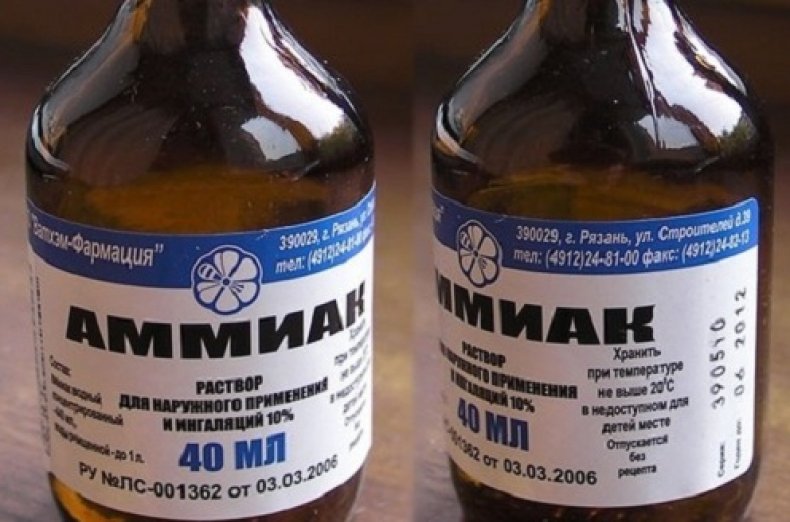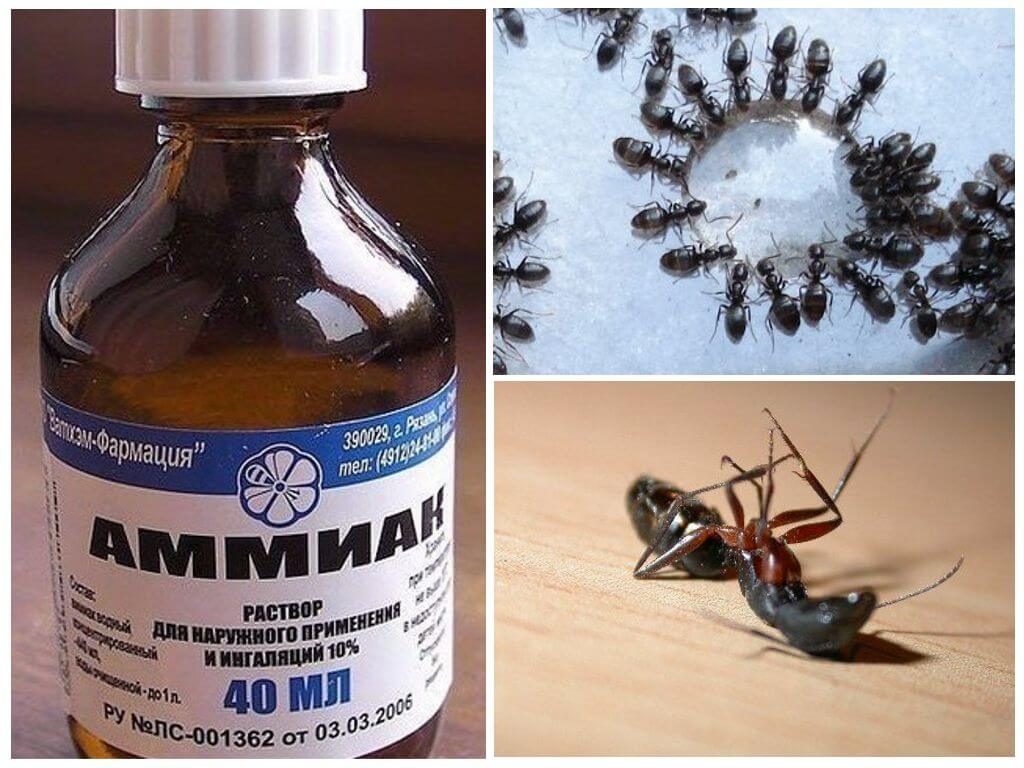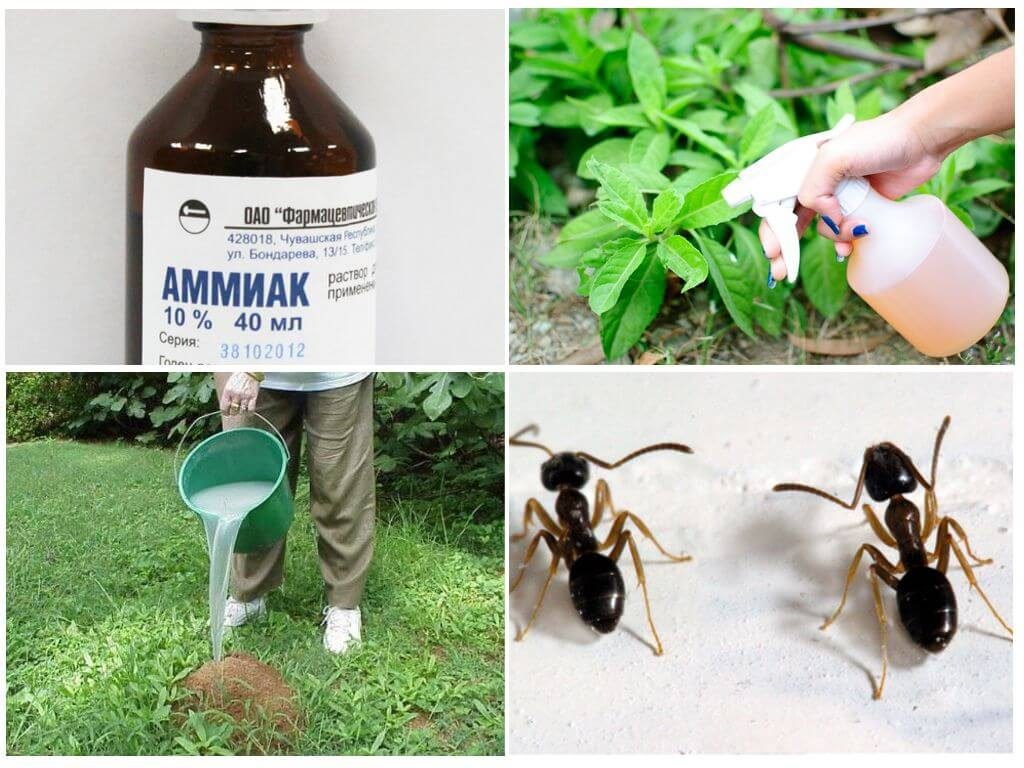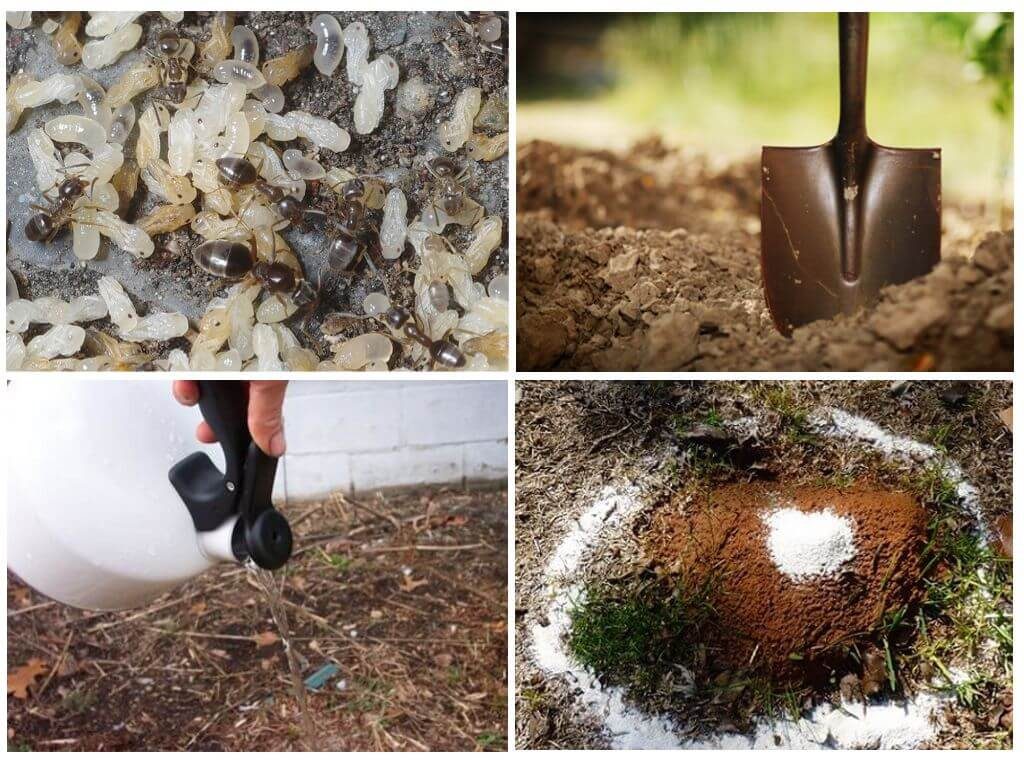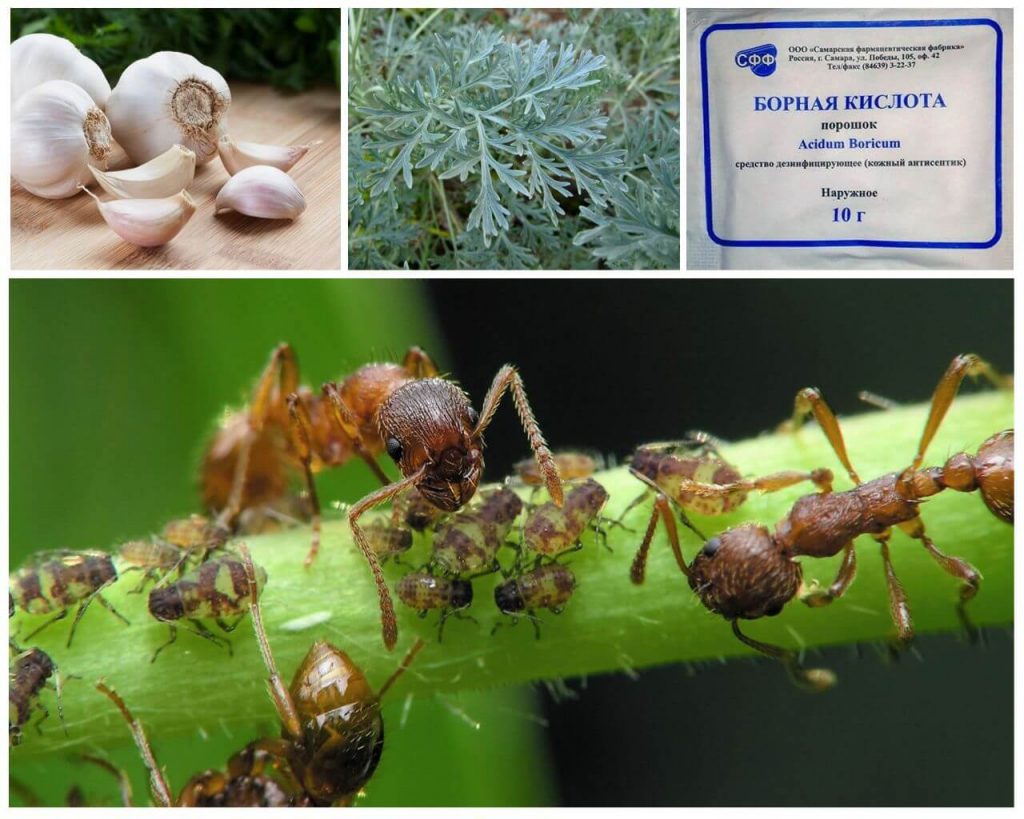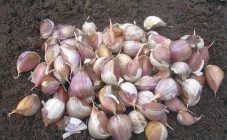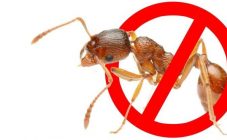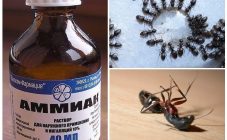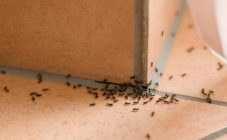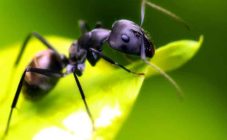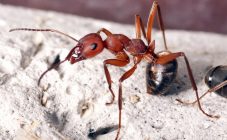Content:
Every year, gardeners and gardeners make a lot of effort to grow a good harvest. However, all efforts will be in vain if ants are bred in the garden.
They damage the plant:
- foliage;
- fruit;
- root system.
Regular use of insecticides is fraught with soil poisoning. A reliable remedy in the fight against garden ants is ammonia. He frees for a long time from annoying guests.
Ammonia is an aqueous solution of ammonia. Colorless liquid has a pronounced specific aroma. Dispensed without a prescription in the pharmacy chain. It is used not only for medicinal purposes, but also in summer cottages as a cheap nitrogen fertilizing and pest medicine.
Ants in the garden: how they harm
Reproduction of ants occurs at a rapid pace. Ant colonies occupy a huge area. Their nests are not visible, which makes it difficult to resist insects. At the head of the colony is the uterus, whose clutches reach thousands of eggs. Worker ants try to feed her and numerous larvae.
Due to their indifference to sweets, ants threaten supplies in the country and the harvest of berries and not only. In order to obtain building materials, insects make moves in wooden buildings.
To get rid of insects in open and protected ground, use:
- boric acid;
- Fufanon;
- Muratsid;
- Muravyin.
Insects easily penetrate all parts of the infield.
This invasion has a negative effect on plant productivity:
- digging underground passages causes damage to the roots, primarily in young seedlings;
- the omnivorousness of ants leads to eating adult crops and seedlings;
- when extracting nectar, they harm flower buds and their full disclosure;
- fruit fruits, for example, apricots, plums, which are damaged by insects, become unusable, they cannot be eaten and stored;
- the tunnels that ants make in the wood cause rottenness and open access to other harmful insects.
The ammonia is distinguished by its effectiveness in the fight against aphids: this way the site will get rid of parasites. Failure to take urgent measures threatens the harvest, sometimes leading to the death of not only sprouts, but also adult trees.
The principle of the drug
It is important to know how to deal with ants in the garden and vegetable garden with ammonia.
The owners of summer cottages practice the use of ammonia against parasites, which effectively fights against harmful insects. The action is based on a strong smell, which scares away pests.
In addition, it destroys pests that have been in direct contact with the solution. Once in the digestive system of the parasite, it causes burns and swelling of the walls. This causes paralysis and death of insects.In half of the deaths, ammonia does not reach the digestive system: a strong odor paralyzes the breath of a harmful insect, causing death. The ammonia acts on parasites as an irritant. Repulsive amber will remove uninvited guests from the garden.
Ammonia is a productive agent in the fight against other pests:
- bear and wireworm;
- carrot and onion fly;
- secretive proboscis.
Benefits of the tool
The main advantages of ammonia, which determine the growing demand:
- low cost;
- harmlessness to humans;
- ease of use;
- effectiveness;
- profitability;
- destruction of parasites at all stages of development: eggs, larvae, adults.
Ammonia (10%), which is in the home medicine cabinet, will remove ants from the infield.
Methods in demand
Watering the anthill
They get rid of pests by digging up an anthill and carrying it out into the forest. There is a risk of parasites returning.
It is more correct to force insects to leave their habitat with the help of ammonia:
- A solution is prepared, which consists of 5 liters of water and 2 tablespoons of ammonia.
- Saturated material is impregnated with ammonia: 1000 ml of water is required per 100 ml. Cover the anthill carefully. For reliability, a layer of earth is removed from above and polyethylene is placed. Ammonia amber repels harmful insects.
Special processing of crops
The plantings are sprayed with ammonia and watered. In a bucket of liquid, dilute with 10 ml of ammonia. The mixture is applied to the place of watering garden plantings at the root. She is a nitrogen fertilizer. To spray the seedlings, sugar is added to the composition in the amount of 3-4 tablespoons. Stir thoroughly and spray diseased cultures. The destruction of aphids leads to the elimination of ants.
The use of ammonia in the garden provokes a feeling of an unpleasant ammonia smell, but after a few minutes it will completely disappear. Insects will remember the scent for a long time.
Salmon contains up to 82% of nitrogen molecules of the total mass, which are suitable for fertilizing the soil. The yellowness of the foliage and wilting of the plantings indicate a nitrogen deficiency.
Folk recipes with ammonia
A distinctive feature of ammonia in the breeding of ants and aphids is the possibility of using it during the growing season: from the emergence of sprouts to maturation and after harvesting. It is useful to mix shampoo, tar or laundry soap into ammonia to impart sticky properties and increase the productivity of the product.
For ants in the beds, an aqueous solution of ammonia, prepared from 8 liters of liquid and a tablespoon of the drug, is suitable. The mixture is kneaded and insisted for half an hour. A small dosage can both drive away parasites and become a fertilizer for plants.
Prevention measures
To prevent phyto-pests in the country, they adhere to hygiene rules:
- storage of sweets, cut fruits, meat products, drinks in containers that are hermetically sealed;
- promptly remove leftover food from the table and wash the dishes;
- throw away garbage.
While the gardener understands the reasons for the death of the plantings, the pest's dwelling is buried in the ground. He is not afraid of either frost or food poisoning. It is advisable to carry out preventive measures that facilitate the fight against parasites.
Repellent aromas are used against pests on the site.Cultures are watered twice a month, adding ammonia (tablespoon).
Ammonium is used for prophylactic spraying of aphids in the spring. Before the operation, micro-residues of organic matter from last year are painstakingly removed: grass, fallen leaves, branches. Garbage is a potential habitat for aphid larvae. Biowaste is certainly burned. Preventive spraying is carried out three times.
Use available methods:
- Dusting ant tracks with tobacco dust. Ants can't stand the smell of tobacco;
- Citrus. Fresh lemon zest and citron aroma repel harmful insects;
- Garlic. Garlic arrows are laid out on the beds. It is a proven remedy for the treatment of phyto-diseases and the fight against pests;
- Wormwood, mint, tansy. Planting herbs in the country and cutting them for laying under trees, bushes - protection from insects and mice;
- Boiling water. Poured into minks. Prepare a couple of buckets of water. They carry out the procedure when the sun goes down and all the inhabitants of the anthill are at home;
- Boric acid balls. Boil 3 eggs and potatoes each. Peel, mash the yolk with potatoes and mix in 20 g each sugar, vegetable oil, coupled with boric acid. Balls are formed from the mixture and laid out in places where pests are concentrated.
All gardeners want to protect their summer cottage from adversity. Salmon from ants in the garden will solve this problem.
Ammonium alcohol does not harm the environment, is harmless to crops, birds, water reservoirs, beneficial insects, does not accumulate in fruits and soil like nitrate. According to gardeners, it refers to a productive, simple and inexpensive method of fighting ants.
